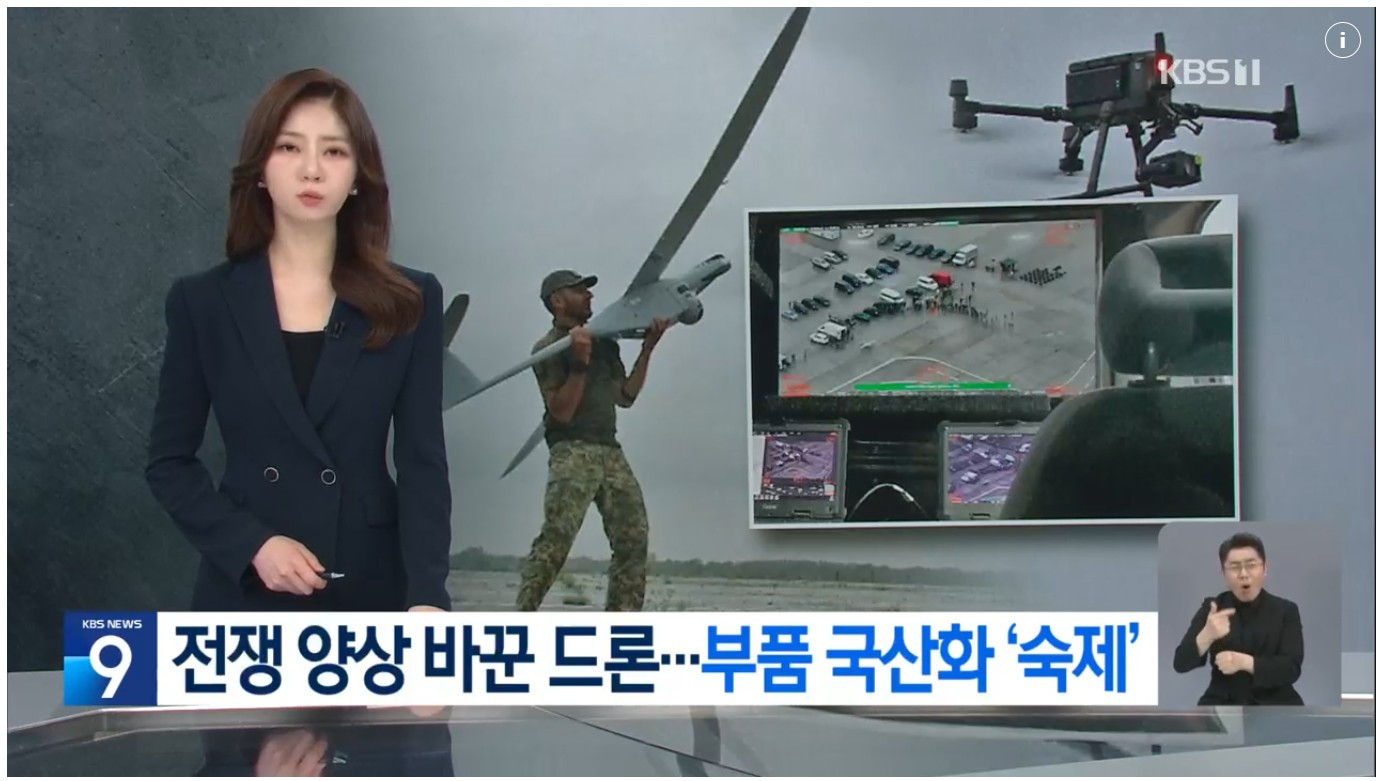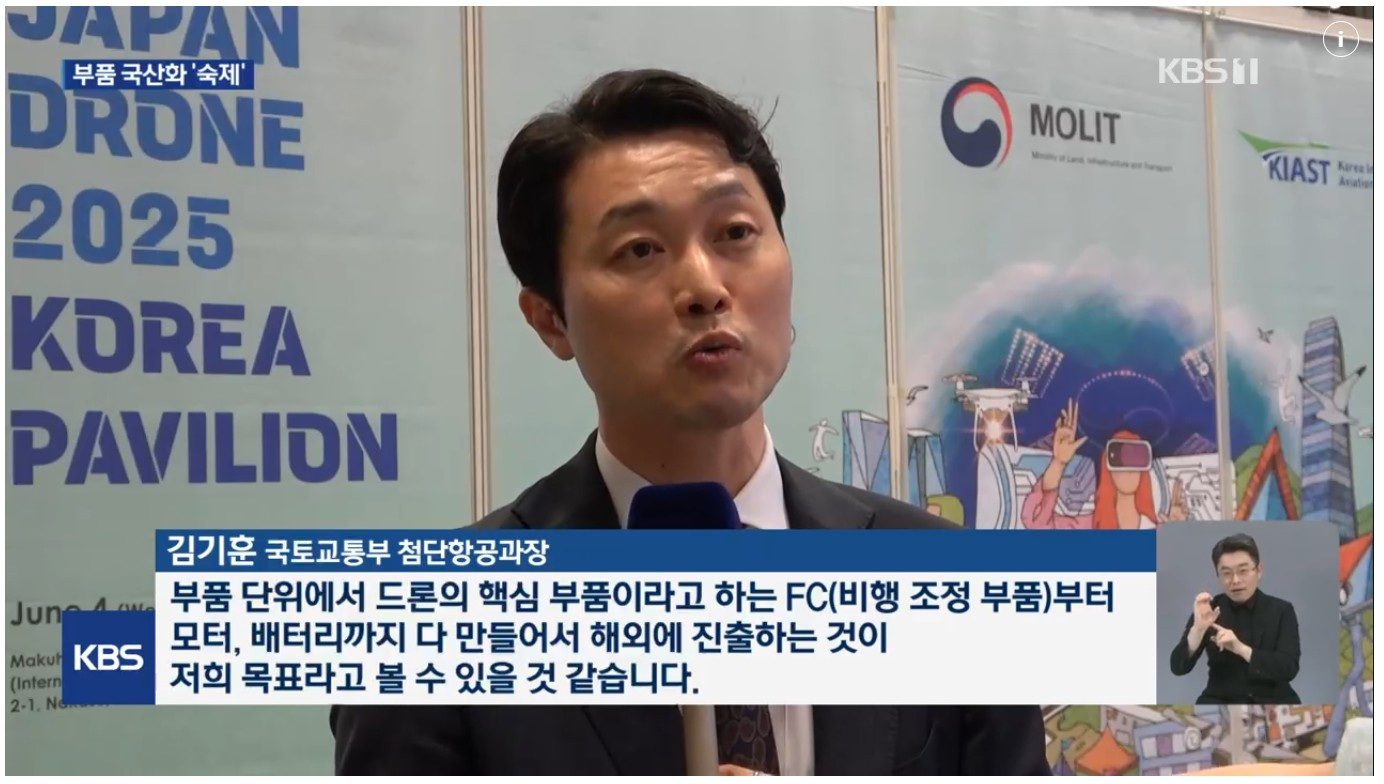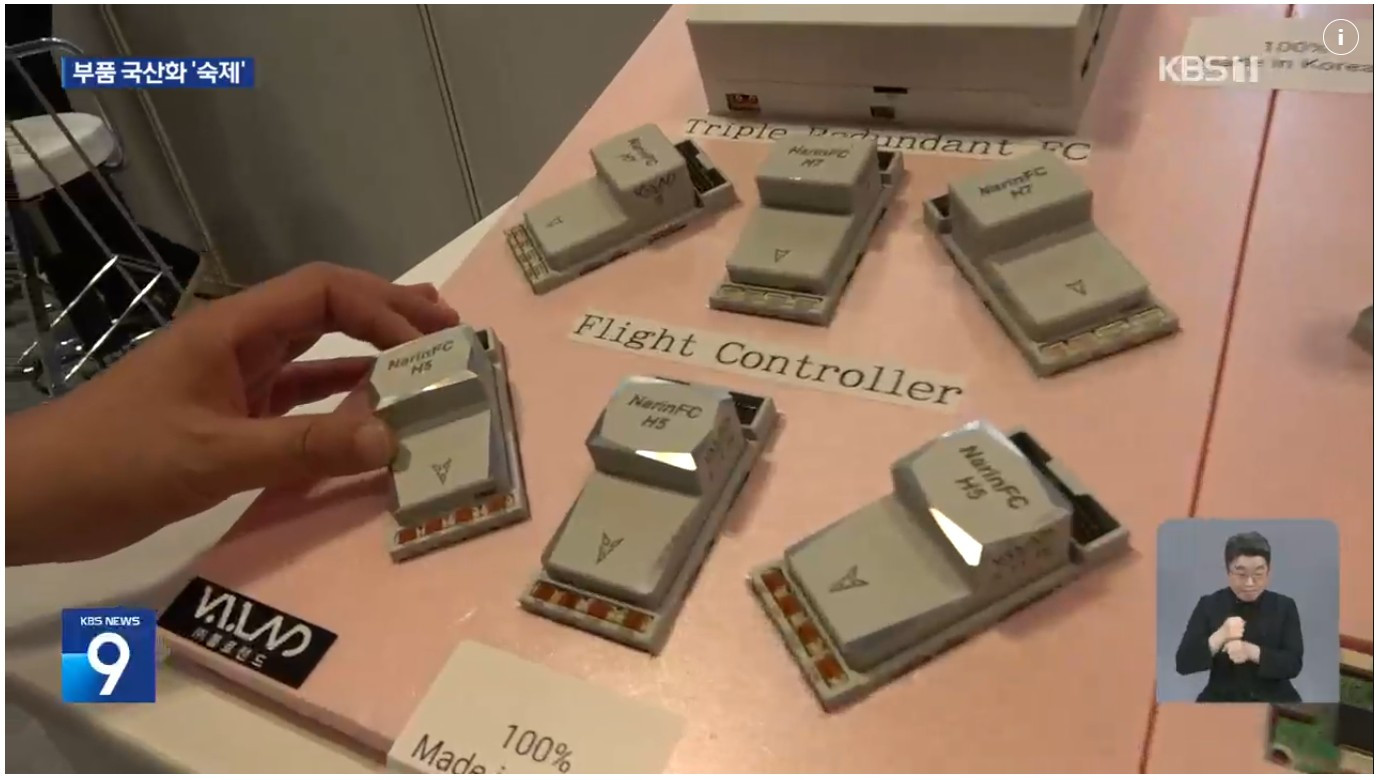Drones Proving Their Power… Growing Importance, But Localization of Parts Remains a Challenge
Anchor
Drones, which are expanding their fields of application, are proving their power on the battlefield as well.
As their importance continues to grow, concerns are rising over the high dependence on Chinese-made products, prompting serious discussions about the localization of drone components.
Reporting from Tokyo, this is Hwang Jin-woo.
Report
Ukrainian drone units rapidly shifted the course of the war with their attacks on Russian forces—
followed by Russia’s counterattacks using drones.
On the battlefield, drones have already proven their value by enabling covert operations and delivering effects hundreds of times greater than their cost.
But it's not just about defense.
Drones have already become essential in areas where human labor alone falls short.
At a three-day drone exhibition in Japan, drone applications integrated with AI technologies drew significant attention.
[Moon Kyung-hwa / Drone Manufacturer for Bridge Inspections:
"When inspecting bridges, the drones can fly autonomously, and the inspection results are automatically compiled into a report using AI. It’s a complete solution."]
However, the excessive reliance on Chinese-made components is a shared concern across many countries.
There are worries about potential leaks of military secrets or critical infrastructure data, as well as the lack of alternatives if the Chinese supply chain is disrupted.
That’s why the United States has imposed restrictions on the use of Chinese drones.
The South Korean government is also working to speed up localization in the drone industry while closely monitoring global trends.
[Kim Ki-hoon / Director of Advanced Aviation Division, Ministry of Land, Infrastructure and Transport:
"Our goal is to manufacture all core components of drones—from flight controllers (FC) to motors and batteries—so we can compete in overseas markets."]
If localization of parts is successful, South Korea may also be able to tap into global markets looking to reduce their dependence on China.
Reporting from Tokyo, this is Hwang Jin-woo for KBS News.
(Production Assistance: Kim Lina / Video Editing: Lee Woong / Research: Lee Jang-mi)



